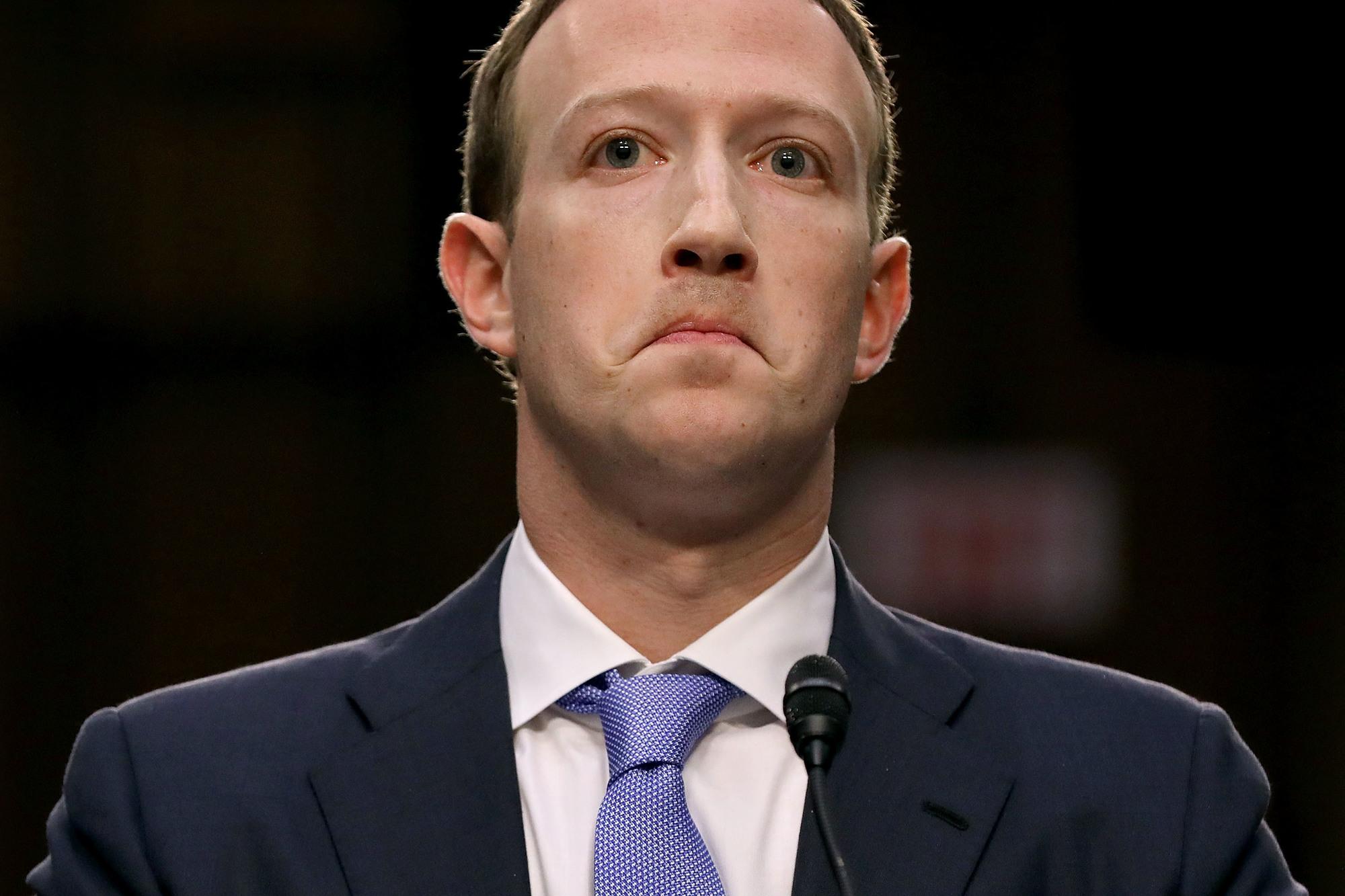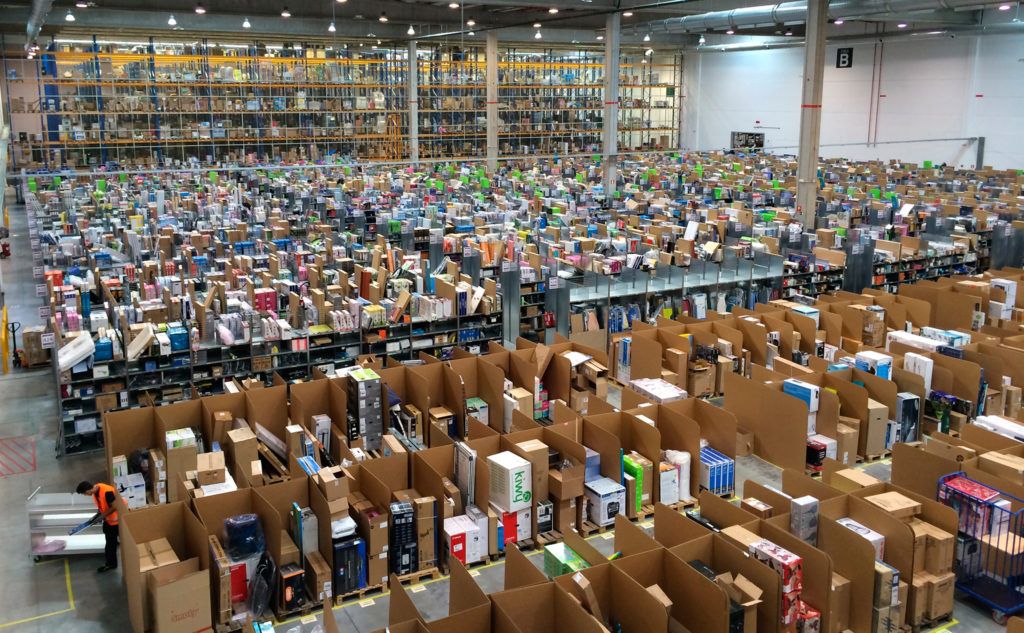Jeff Bezos, founder, chairman and CEO of Amazon. Caricature from photo by Steve Jurvetson/Wikimedia

The latest instalment in our social media series considers the data-driven business model that keeps the big tech firms, unthreatened, at the heart of the global marketplace.
On a Thursday, in early March, Casey Hopkins decided that it was time to bite the hand that fed him. Hopkins, co-founder and CEO of the design company Elevation Lab, wrote a long, righteously angry blog post describing how Amazon.com had repeatedly allowed counterfeiters, probably based in China, to sell knockoff copies of brand-name Elevation products through the site. A counterfeiter had, most recently, created copies of The Anchor, Elevation’s popular headphone hook, using a poorly-cast mold and photocopied box graphics. For five days, Hopkins wrote, the counterfeiter had stolen “all” Amazon sales of The Anchor by undercutting the price of the genuine article.
Moreover, Hopkins said Amazon was “complicit” in the problem, because it profited from the copycat sales, and wasn’t doing much to stop them. Amazon has sold knockoffs of a plethora of innovative, niche products – from phone cases to bedsheet helpers and baby clothes. Each product was crafted with thoughtful attention to an unaddressed need, and in each case, an imitator quickly stole the idea, along with as much as 90% of Amazon sales.
Of course, these niche products and companies might not exist in the first place if it weren’t for Amazon. The retailer’s ability to connect customers to the precise product they want – whether hipster baby clothes or a hook for headphones – is exemplary of the rise of the data economy.
In his new book, Reinventing Capitalism in the Age of Big Data, Viktor Mayer-Schönberger says data-rich marketplaces, such as Amazon, are making commerce drastically more efficient by using trackers and algorithms that predict consumer desires. But Mayer-Schönberger and his co-author, Thomas Ramge, also warn that the nearly-inevitable concentration of digital marketplaces and advertising channels is making society more vulnerable to market breakdowns.
The logic of algorithmic targeting also drives online media such as Facebook, Twitter, and Google’s YouTube, though they’re selling targeted advertising rather than hawking products directly. That slight distinction is what makes the problems of these social media sites more attention-grabbing than Amazon’s counterfeit epidemic.
In building systems that let them find the perfect customers for a headphone hook, social networks also gained the ability to push the specific rage buttons of narrow, vocal social groups. And just as Amazon isn’t structurally punished for selling counterfeits from China, Facebook doesn’t care much if the content demanding user attention is coming from Russia. Facebook CEO Mark Zuckerberg dragged his feet over any admission of flaws in the platform, moving towards reform only after a massive post-election backlash.

Fraud that exploited data targeting would be a minor annoyance at worst, of course, if the malefactors were tricking one or two online outlets out of 20 that were equally popular. But Amazon, Facebook, and Google overwhelmingly dominate their sectors. Google answers 90% of all search queries. Amazon generates nearly half of all online sales. And for niche products, Amazon can generate up to 90% of sales – making its tolerance for counterfeiters a systemic menace.
Of course, Amazon was a pioneer of ecommerce, so maybe its market share is just a product of first-mover advantage. By standard economic logic, its early lead should now be slowly eroding under competition from new entrants. After all, anyone can start a website – right?
But no – Amazon gained 5% more market share last year alone. That’s because the pathway to market dominance has changed since the age of railroads and telephones. Those systems benefited from ‘network effects’, with each new node making the whole operation more appealing for new customers, and eventually eliminating healthy competition. Mayer-Schönberger and Ramge argue that the combination of data-gathering and machine learning instead leads to what’s called a ‘feedback effect’ – which is something like a network effect on steroids.
As they collect data and refine their algorithms, those such as Google and Netflix pull ahead in the race to predict consumer desires – which helps them win more customers, and in turn more data, until they can’t be overtaken. Because of the resulting concentration, any flaws in the algorithms used by Amazon and Google have immediate and widespread effects. In another alarming example, an unknown group has successfully gamed YouTube and showed algorithmically-generated, often violent videos to millions of children.
But these problems don’t need to be caused by fraudsters, cheats, and counterfeiters. Alex Jones’ Infowars channel was recently censured by YouTube after nearly a decade of spreading dangerous conspiracy theories there. Jones is an American who seems to at least partly believe what he is selling – and has made millions of dollars not only for himself, but for YouTube too. Systematic harassment on Twitter doesn’t necessarily come from the Russians. Amazon could be misreading consumer preferences in ways that are unseen, but have vast distorting impacts on the market. We don’t know because we don’t have access to its data or algorithms.

The only way to preclude such deep distortions of our social and economic systems is to let companies try to out-predict each other – to create competition at the level of the algorithm itself. Because of the nature of machine-learning feedback effects, though, there are big barriers to new entrants. A startup social network has neither Facebook’s current audience, nor its historical trove of data about how audiences in the abstract behave. Without that data, a Facebook competitor can’t hope to train its own system to be nearly as effective at keeping users’ attention, and selling ads against that attention.
There are a number of policy recommendations on the table to encourage competition among data-driven companies. Some have suggested forcing transparency of algorithms themselves, but that wouldn’t give competitors the training data they really need. Chicago Booth School of Business Professors Luis Zingales and Guy Rolnik have proposed that individuals should have a property right to their own data, creating smooth portability between platforms. That might make switching social networks much easier, perhaps applying pressure on Twitter et al to curb abuse.
But those individual data rights wouldn’t create the critical mass of data to let an Amazon or Google competitor come up with new and better ways to match audiences and buyers with creators and sellers. For that, Mayer-Schönberger and Ramge say we need what they call a “progressive data-sharing mandate”, which would force companies to share their data with smaller competitors in proportion with their market share.
So, for instance, Amazon might be mandated to share half of its current consumer preference data (anonymised, of course) with smaller competitors. Of course, data isn’t sufficient to build a viable Amazon competitor, but it might very well be necessary. Competing startups might apply different insights to raw data gathered by the giants in their field, or simply structure their offering in a different way, or impose different policies – such as more closely scrutinising low-cost Chinese resellers.
For Casey Hopkins, a viable alternative to the Everything Store can’t come soon enough. Amazon pulled the counterfeiter that had squatted The Anchor’s product page within hours of Hopkins’ blog post going viral – but just three days later, another one had taken its place.










Join the discussion
Join like minded readers that support our journalism by becoming a paid subscriber
To join the discussion in the comments, become a paid subscriber.
Join like minded readers that support our journalism, read unlimited articles and enjoy other subscriber-only benefits.
Subscribe